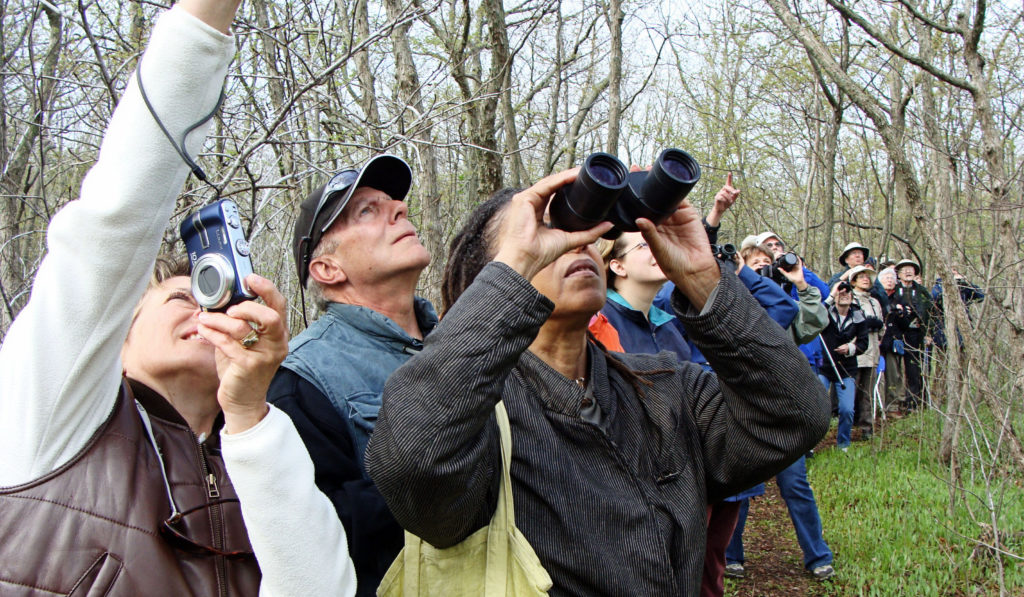Prince Edward County, Ontario, Canada
Birders Code of Ethics
(courtesy of Ontario Field Ornithologists)

Who is the code for?
This Code of Birding Ethics is for all of those who observe or photograph birds. It was adopted in 1994 and updated in 2016. Please follow this code. Distribute it and teach it to others. It is up to you to help promote respect toward wildlife, wildlife habitat, the environment, and other people.
Why is a Code of Ethics necessary?
As the number of birders increases, we must all, no matter what our interest in birds, make every effort to act in a positive and responsible way to protect birds and their habitat. We must also be considerate of other birders and non-birders who may be affected by our activities. Birders can and should lead by example as ambassadors of birding and environmental stewardship.
The welfare of the birds comes first
Whatever your interest, from scientific study to sound recording to photography to listing, always consider the impact of your activity on the bird. Respect bird protection laws and abide by them at all times.
Protect habitat
Use trails, pathways and roadsides to avoid trampling vegetation. Do not alter habitat or nesting sites for better viewing or photographic opportunities. Support the protection of important bird habitat.
Keep disturbance to a minimum
Although some birds can tolerate human activity, this varies from species to species and from season to season. Always assume t hat a bird is sensitive to your presence. To avoid stressing birds or exposing them to danger, exercise restraint during observation, photography, sound recording, or filming. Migrants may be tired and hungry and should not be kept from resting or feeding. Do not deliberately flush birds. Limit the use of playbacks or other methods of attracting birds. Never use such methods in heavily birded areas, or for attracting any species that is Endangered, Threatened or of Special Concern, or is rare in your local area. Keep well back from nests and nesting colonies, roosts, display areas, and important feeding sites. Use flash or artificial light sparingly for filming or photography, especially for close-ups and in situations where there are many photographers.
Be cautious about advertising the presence of rare birds
Before advertising the presence of a rare bird, evaluate the potential for disturbance to the bird, its surroundings, and other people in the area, and proceed only if access can be controlled, disturbance minimized, and permission has been obtained from private land-owners. Ask the landowner for a list of do’s and don’ts, for example, where people may stand to get a good view and what restrictions there may be on time of day. Also ask which areas are off limit. If you decide to release the news, give precise directions and any restrictions noted by landowners. If you discover the nest of a rare breeding bird, divulge the location only to the proper local or regional conservation authority.
Respect the rights of landowners
Do not enter private property without the owner’s explicit permission.
Follow the rules regarding public areas
Be aware of the rules about access to Conservation Authorities, National and Provincial Parks, and Regional Authorities. Follow all laws, rules, and regulations governing use of roads and public areas.
Be considerate of others
Try not to disrupt other birders’ activities or flush the birds they may be watching. Be helpful to beginners – they will thank you for it. Many other people enjoy the outdoors; do not interfere with their activities. If you see people obviously disturbing birds or significantly damaging habitat, explain to them the effect of their actions but be courteous, they may not be aware of the effect they are having. Your exemplary behavior will generate goodwill with birders and non-birders alike.
Increase our knowledge about birds
Keep detailed notes of your sightings, enter your sightings on eBird and submit them to relevant authority (e.g. area/regional bird record compiler, or local naturalist club). Submit your reports of review list species to the Secretary, Ontario Bird Records Committee (OBRC).
Bird responsibly in other countries, provinces or regions
Respect all local codes of ethics or any special rules.
Questions or comments? info@ofo.ca